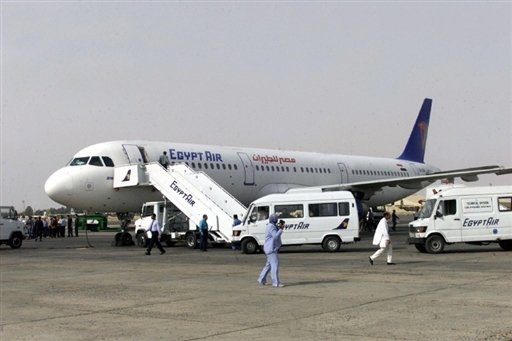Drivers of Egypt’s GDP growth are shifting from the historical factors such as consumption toward investment and net exports, according to a World Bank (WB) report which was released on Tuesday, entitled “Egypt Economic Monitor: From Floating to Thriving – Taking Egypt’s Exports to New Levels”.
The economic growth remains robust in the first half (H1) of FY 2018/19 at 5.4% compared to 5.2% in the same period of the previous year, the report said, noting that the largest contributors of Egypt’s GDP growth in FY 2017/18 were net exports followed by private investment, indicating that the drivers of the economic growth are shifting from private consumption which has historically been the main contributor to the GDP growth.
Macroeconomic indicators have reacted positively to the reforms undertaken by the government, the report mentioned, noting that Egypt’s real GDP grew robustly by 5.3% in FY 2017/18 compared to 4.2% in the previous year.
The public consumption and investment contribution to growth is diminishing. The domestic savings rate has thus started to rise once again reaching 6.2% of Egypt’s GDP in FY 2017/18, after declining to a 15-year low of 1.8% in FY 2016/17.
With an influx of capital expenditure to the energy, extractives and real estate sectors, private investment is picking up but remains stifled by the difficult business environment and high interest rates, the report noted.
On the sectoral side, most of the sectors grew at a reasonable pace in FY 2017/18, but concerns remain over the limited drivers of recovery beyond gas and tourism, the report mentioned.
Labour market indicators are yet to reflect a broad-based growth recovery, said the report, noting that the unemployment rate declined, but the recent growth recovery does not seem to fully reflect on all labour market outcomes.
The chronic problem of youth unemployment is particularly challenging, and it is mainly concentrated among those with university education, the report asserted
Additionally, expenditure reforms have mostly focused on reducing inefficient and unsustainable expenditure items, the report said, adding that the education and health sectors have yet to benefit from freed-up resources.
“Despite a constitutional mandate to increase spending on education and health to 6% and 3% of the Egypt’s GDP respectively. The size of the education sector decreased from 3.6% of GDP IN FY 2016 to 2.5%in FY 2018 and budget at 2.2% in FY 2019. Similarly, health spending was at 1.6% of the GDP in FY 2018 which is below the constitutional target,” mentioned the report.
The share of public spending on health and education includes debt serving for both sectors and the provision of drinking water and sanitation for the health sector.
Inflation receded but remains elevated, with adverse effects on socioeconomic conditions and investment decisions, the WB report mentioned, noting that high inflation disproportionately hurts the poor and those living on fixed income, and complicates investment decisions.
Interestingly, Egypt’s annual inflation fell unexpectedly to its lowest rate in more than three years, reaching 8.9% in June, compared to 13.2% in May, and 13.8% in June of last year, according to the Central Agency for Public Mobilization and Statistics (CAPMAS) last week.
The liberalisation of the exchange rate in November 2016 was necessary to correct for the exchange rate misalignment but it is not sufficient to guarantee a notable improvement in export performance, the WB report said.
Historical trends also show that improvements in export performance have been short-lived, indicating difficulties in sustaining progress, the report mentioned, adding that while Egypt is a fairly open economy, its region integration has lagged behind, reflecting limited trade ties to north Africa or the wider MENA and Africa regions.
The WB and the Egyptian government have a strong partnership to implement the education and health sectors’ reforms, Minister of Investment and International Cooperation (MIIC), Sahar Nasr, said during her speech at the event that was held at the MIIC premises on Tuesday to launch the report.
Nasr added that the MIIC is in discussions with the WB team on the future version of the Doing Business Report that will be released over the next months, asserting her ministry’s keenness on benefiting from international experiences to further improve Egypt’s investment climate.
Egypt has achieved many accomplishments toward achieving the Sustainable Development Goals and boosting economic growth, Nasr said.
For her part, Country Director for Egypt, Yemen and Djibouti at the WB, Marina Wes, commented, “the bank will continue to promote the current partnership with Egypt, asserting the Egypt Economic Monitor report presents the accomplishments that the government achieved to boost the country’s economic growth.”




